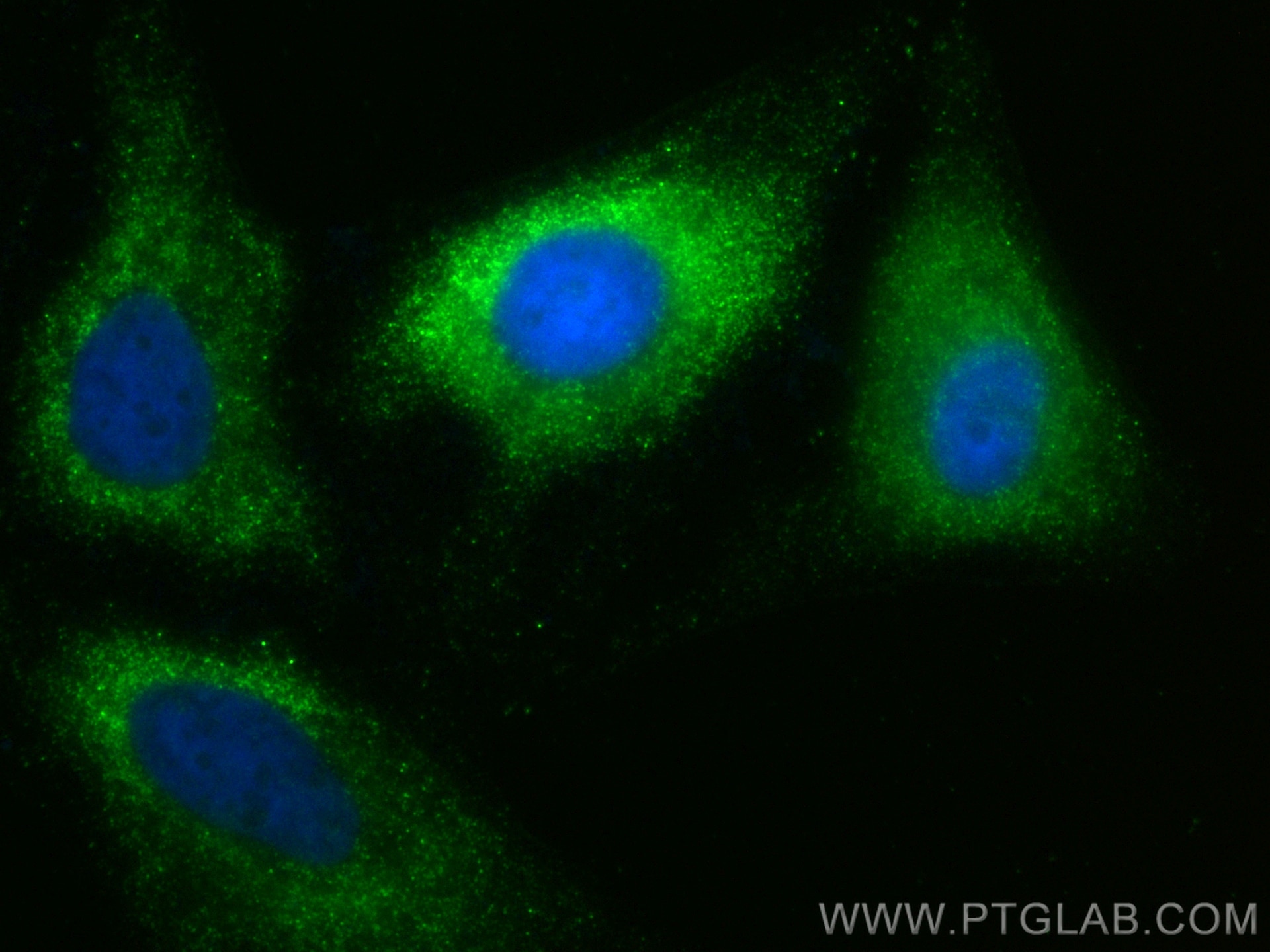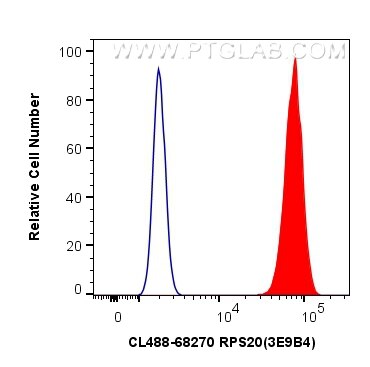Validation Data Gallery
Tested Applications
| Positive IF/ICC detected in | HeLa cells |
| Positive FC (Intra) detected in | HeLa cells |
Recommended dilution
| Application | Dilution |
|---|---|
| Immunofluorescence (IF)/ICC | IF/ICC : 1:50-1:500 |
| Flow Cytometry (FC) (INTRA) | FC (INTRA) : 0.40 ug per 10^6 cells in a 100 µl suspension |
| It is recommended that this reagent should be titrated in each testing system to obtain optimal results. | |
| Sample-dependent, Check data in validation data gallery. | |
Product Information
CL488-68270 targets RPS20 in IF/ICC, FC (Intra) applications and shows reactivity with human samples.
| Tested Reactivity | human |
| Host / Isotype | Mouse / IgG1 |
| Class | Monoclonal |
| Type | Antibody |
| Immunogen |
CatNo: Ag8275 Product name: Recombinant human RPS20 protein Source: e coli.-derived, PET28a Tag: 6*His Domain: 1-119 aa of BC007507 Sequence: MAFKDTGKTPVEPEVAIHRIRITLTSRNVKSLEKVCADLIRGAKEKNLKVKGPVRMPTKTLRITTRKTPCGEGSKTWDRFQMRIHKRLIDLHSPSEIVKQITSISIEPGVEVEVTIADA 相同性解析による交差性が予測される生物種 |
| Full Name | ribosomal protein S20 |
| Calculated molecular weight | 13 kDa |
| Observed molecular weight | 16 kDa |
| GenBank accession number | BC007507 |
| Gene Symbol | RPS20 |
| Gene ID (NCBI) | 6224 |
| RRID | AB_3084463 |
| Conjugate | CoraLite® Plus 488 Fluorescent Dye |
| Excitation/Emission maxima wavelengths | 493 nm / 522 nm |
| Form | |
| Form | Liquid |
| Purification Method | Protein G purification |
| UNIPROT ID | P60866 |
| Storage Buffer | PBS with 50% glycerol, 0.05% Proclin300, 0.5% BSA{{ptg:BufferTemp}}7.3 |
| Storage Conditions | Store at -20°C. Avoid exposure to light. Stable for one year after shipment. Aliquoting is unnecessary for -20oC storage. |
Background Information
Ribosomes, the organelles that catalyze protein synthesis, consist of a small 40S subunit and a large 60S subunit. Together these subunits are composed of 4 RNA species and approximately 80 structurally distinct proteins. RPS20 is a component of the 40S subunit. The protein belongs to the S10P family of ribosomal proteins. It is located in the cytoplasm.
Protocols
| Product Specific Protocols | |
|---|---|
| FC protocol for CL Plus 488 RPS20 antibody CL488-68270 | Download protocol |
| IF protocol for CL Plus 488 RPS20 antibody CL488-68270 | Download protocol |
| Standard Protocols | |
|---|---|
| Click here to view our Standard Protocols |


